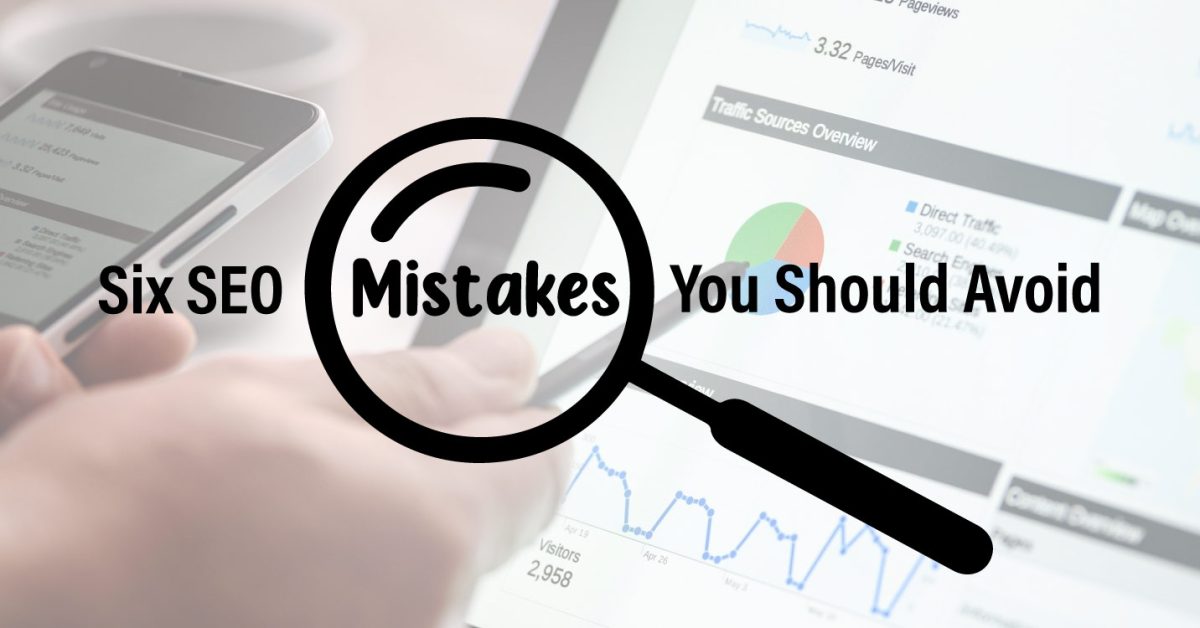You need a strong SEO strategy in conjunction with your online marketing if you want to succeed. This demands continual optimization of content for SEO, as well as performance monitoring. Some marketers fail to take advantage of the power of SEO to promote their brands, which is one of the basic mistakes they make.
However, SEO is a tricky game, and it requires some effort to master. You may not see much of an impact from SEO if you’ve just started doing it. Don’t be discouraged. Unlike other strategies, SEO can be implemented in just a few weeks, but results take time to appear.
If you make an SEO mistake, not only will you waste your time, but you will also hurt your business. Because they didn’t implement SEO in the right way, many brands have been penalized by Google. Though using Search Engine Optimization services can help you get the best results, you need to be aware of some basic SEO mistakes.
The following are common Search Engine Optimization (SEO) mistakes that you need to avoid.
Ignoring keyword research
When creating your SEO strategy, the first step is to determine your focus keywords. Despite its obvious simplicity, many marketers and brands still struggle with it.
It used to be quite simple to optimize your content for keywords when SEO was still a relatively new concept. Companies intended to appear on Google’s radar by saturating their content with relevant keywords. Sometimes, they would use them out of context just to push themselves to the top of Google search results.
However, the success of the trick was not long-lasting, and it failed to secure good rankings. Keyword-rich content was soon realized to provide an unsatisfactory experience for Google users.
This prompted Google to make changes to its search algorithms. The tactic of keyword stuffing has also been added to a list of black-hat SEO techniques. The use of Latent Semantic Indexing (LSI) by Google has made stuffing your content with specific words pointless and even potentially harmful. Forget rankings. Your website could be banned by Google if you are caught in the act. (Thus, you should never take a chance and opt for Search Engine Optimization services from a reputed company)
What is the best way to optimize content for keywords? Identify keywords with low competition and high search volume. You can guarantee that a lot of people will search for them, but not that many will use them. To find the right keywords, you can use tools like Moz Keyword Explorer, Google Keyword Planner, or KeySearch.
Keyword research is a critical part of SEO. Setting your brand apart from your competitors will be easier if you research your keywords.
Having a slow site loading speed
All your Local Search Engine Optimization and other efforts would go in vain if you have a slow loading website. The importance of speed may have escaped your notice if you have not been following the news about ranking factors. Several times, Google has stated that “site load speed” is one of the factors they consider when ranking websites. Beginning in July, it will be factored into mobile search rankings.
Take a moment to consider it. How long will visitors wait for your website to load if it is slow? The majority won’t. The reason Google doesn’t rank those sites is that they provide poor user experiences. Moreover, when your site gets ranked and gets traffic, but it is slow to load, your conversions suffer.
Now is the time to check the load time of your site if you haven’t already. You can test your website speed in a number of ways. Tracking your site’s performance with Google’s PageSpeed tool is an example. The tool also provides a report on how fast your site loads on desktops and mobile devices.
Having poor-quality or irrelevant links
As with keyword stuffing, sites with thousands of backlinks from hundreds of domains potentially helped improve your domain authority and search engine rankings. The use of black hat tactics, such as buying backlinks or building links to sketchy directories, has resulted in penalties and ranking demotions.
As a result, many of these websites have seen their rankings drop dramatically due to search engine algorithms spotting such tactics. Managing backlinks has become a tedious task for website owners and agencies. Conduct thorough research on the domains you’re linking to or get the best link building services so that you can make sure they’re relevant and have a good standing with search engines.
HTTPS migration not yet completed
The internet today has become more than just a place to browse, it is a place we practically live in. Safety and security have become major concerns as more and more people use the internet every day.
Google’s own browser extension will now call out sites that are not on HTTPS, in addition to rewarding sites that migrate to HTTPS with better rankings. All HTTP sites will be marked as “not secure” on Google Chrome starting in July 2018.
Making the web safer is the goal of migrating from HTTP to HTTPS. Thus, your personal information will remain private and will not be misused by others.
The chances that Google actually reveals the ranking factors for its websites is quite rare. However, website owners should definitely listen to experts who clearly state that creating or migrating to HTTPS will boost website rankings.
No consideration is given to mobile optimization
After considering the HTTPS migration and getting the best link building services, making your website mobile-friendly should definitely be your next step!
This is a common mistake, but brands pay dearly for not optimizing their sites for mobile devices and handhelds. With Google’s introduction of mobile-first indexing, the search engine is poised to become more dominant. Hence, if your website isn’t fully optimized for mobile, you should consider making it mobile-friendly.
Mobile and handheld device users are increasing steadily every year, so optimizing your website for mobile is a good idea. Be sure your website is responsive. The easiest-to-manage and most SEO-friendly solution. To determine whether your website needs improvement, use Google’s Mobile-Friendly Test.
No Accelerated Mobile Pages (AMP)
Even if you want to utilize local search engine optimization to your benefit, this bit is important! Publishers can use AMPs, which are freeware coding standards. AMP is designed to speed up and optimize the load times of publishers’ websites. What does this mean for search rankings? AMP enables publishers to create content that is optimized for mobile and is available anywhere instantly.
Instead of searching for information on Google, you’ll find a carousel of news stories. The results will be highlighted. Those sites will then be followed by those with the AMP tag so they can load faster.
As part of this open-source initiative, Google announced it in 2015. The purpose of this initiative was to improve performance on mobile sites, speed up page loads, and streamline search capabilities. AMP-integrated website appears in special search results since Google launched it in 2016.
AMP-enabled websites currently enjoy two major benefits from Google. A page that uses AMP will have the “AMP” label on it, which indicates that the page operates faster than others. AMP-compatible sites also rank higher on Google.
Would you like to know what SEO mistakes you are making that you are unaware of? Our free technical SEO audit will help you identify and resolve such issues.



